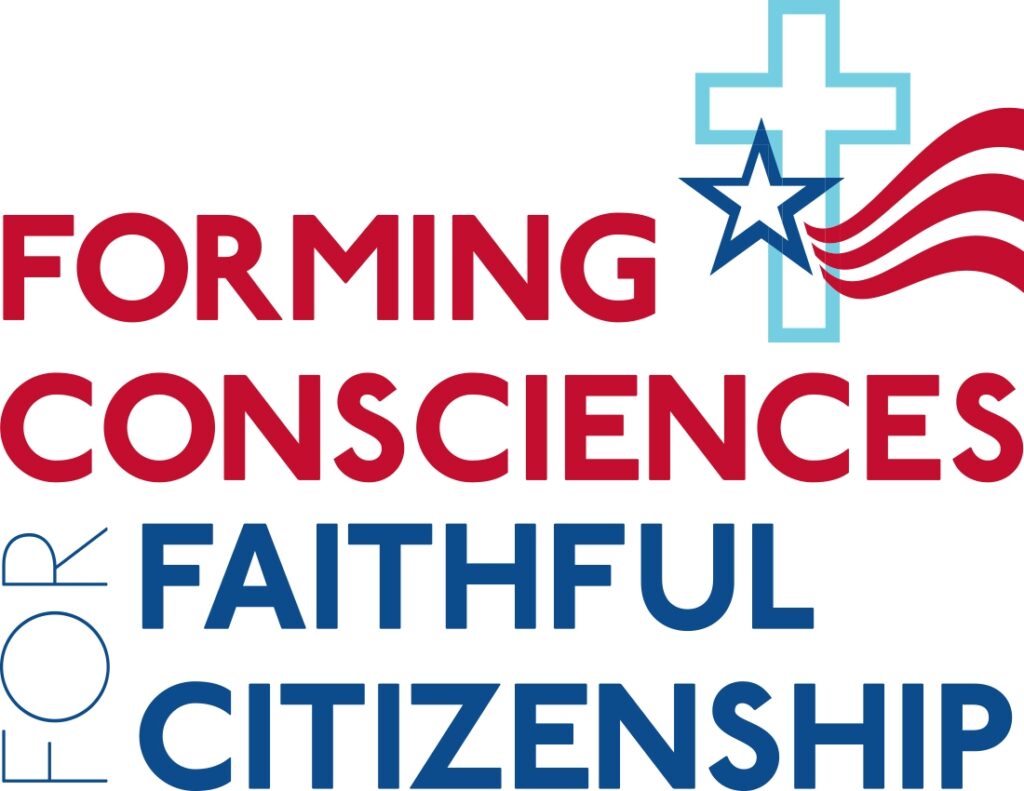Bishops’ document states priorities, emphasizes responsibility
CLEVELAND — The U.S. bishops’ quadrennial document on political responsibility is rooted in the Catholic Church’s long-standing moral tradition that upholds human dignity and the common good of all, Archbishop Paul S. Coakley of Oklahoma City said.
“The document is meant to give Catholic voters an opportunity to reflect upon how their faith intersects with their political and civic responsibilities,” said the archbishop, who chairs the bishops’ Committee on Domestic Justice and Human Development.
Titled “Forming Consciences for Faithful Citizenship: A Call to Political Responsibility From the Catholic Bishops of the United States,” the document has been offered as a guide to Catholic voters every presidential election year since 1976.
It has been updated and revised at four-year intervals to reflect changes in the issues confronting the country since it first appeared.
No candidate endorsement
One thing “Faithful Citizenship” is not is a mandate on which candidate for public office to vote for, Archbishop Coakley said.
Voting, he added, is a responsibility to be taken seriously and that requires prudential judgment in determining who can best serve the common good.
“No candidate will likely reflect all of our values,” he told Catholic News Service Aug. 18. “But I think we need to begin in prayer. We need to know our faith. We need to study our faith. We need to have recourse to the catechism and what it might teach about certain questions.
“This document is intended to be that, an official guide for the formation of consciences that Catholics can utilize as they weigh these questions,” the archbishop said.
Furthermore, he continued, “the Gospel cannot be parsed in political or partisan terms. The Gospel calls us to live by standards and our Catholic faith calls us to embrace standards that are not divisible into left or right, Republican or Democratic terminology.”
The document went through no major revisions for this year’s election, but it is being supplemented by an introductory letter, which underwent a long debate before its adoption by the full body of bishops during their fall general assembly in November.
‘Significant moral dimensions’
The document has three parts.
The first part outlines the responsibility of Catholics to incorporate Catholic teaching as they consider their vote as well as their support for myriad public policy issues that confront society.
The text explores a series of questions related to why the Church teaches about public policy issues; who in the Church should participate in political life; how the Church helps Catholics to speak about political and social questions; and what the Church says about social teaching in the public square.
Part two outlines policy positions of the bishops on numerous issues. Topics addressed include human life and dignity, promoting peace, marriage and family religious freedom, economic justice, health care, migration, Catholic education, promoting justice and countering violence, combating unjust discrimination, care for the environment, communications, media and culture and global solidarity.
The bishops said they wanted to “call attention to issues with significant moral dimensions that should be carefully considered in each campaign and as policy decisions are made in the years to come.”
Part three lists goals for Catholics’ participation in political life, whether they are citizens, candidates or public officials. Notably, it invites Catholics to assess moral and ethical questions emanating from public policy issues. It also lists nine goals for Catholics to weigh in public life.
“Faithful Citizenship” also draws from the teaching of Pope Francis, Pope Benedict XVI, St. John Paul II, St. John XXIII, the Second Vatican Council, and “Compendium of the Social Doctrine of the Church.”
Priorities
The introductory letter reminds Catholics that “we bring the richness of our faith to the public square” and that “faith and reason inform our efforts to affirm both the dignity of the human person and the common good of all.”
The letter also says, “The threat of abortion remains our preeminent priority because it directly attacks life itself, because it takes place within the sanctuary of the family, and because of the number of lives destroyed. At the same time, we cannot dismiss or ignore other serious threats to human life and dignity, such as racism, the environmental crisis, poverty and the death penalty.”
It concludes by reminding Catholics to “bring their faith and our consistent moral framework to contribute to important work in our communities, nation, and world on an ongoing basis, not just during election season.”
Archbishop Coakley said the bishops expect the guidance offered in the “Faithful Citizenship” materials will gain wider attention this year.
“My hope and prayer is that Catholics who really want their faith to influence their decision making when it comes to going to the polls will give the reflections in this document consideration rather than just going to their favorite news source,” he said. “That’s going to be a very different kind of guidance than what they receive from their favorite cable news anchor or pundit.
“This is our chance to bring a different light to bear to a very important fundamental civic responsibility.”
Editor’s note: The text of “Faithful Citizenship” can be downloaded as a free PDF from USCCB.org, or it can be purchased by going to Store.USCCB.org. The full document also is available in Spanish.

